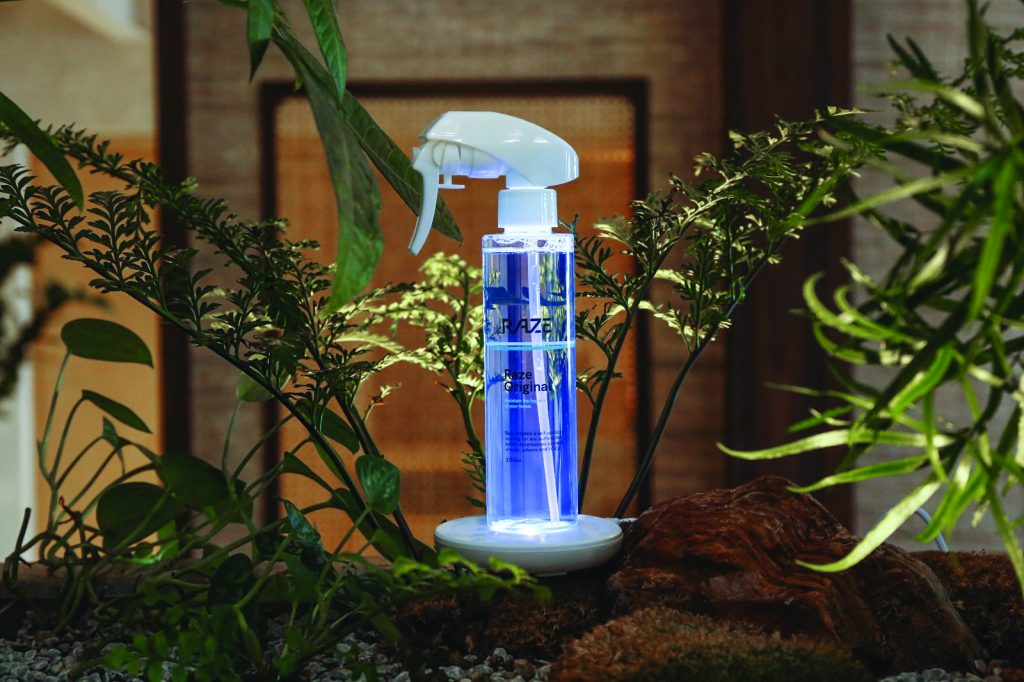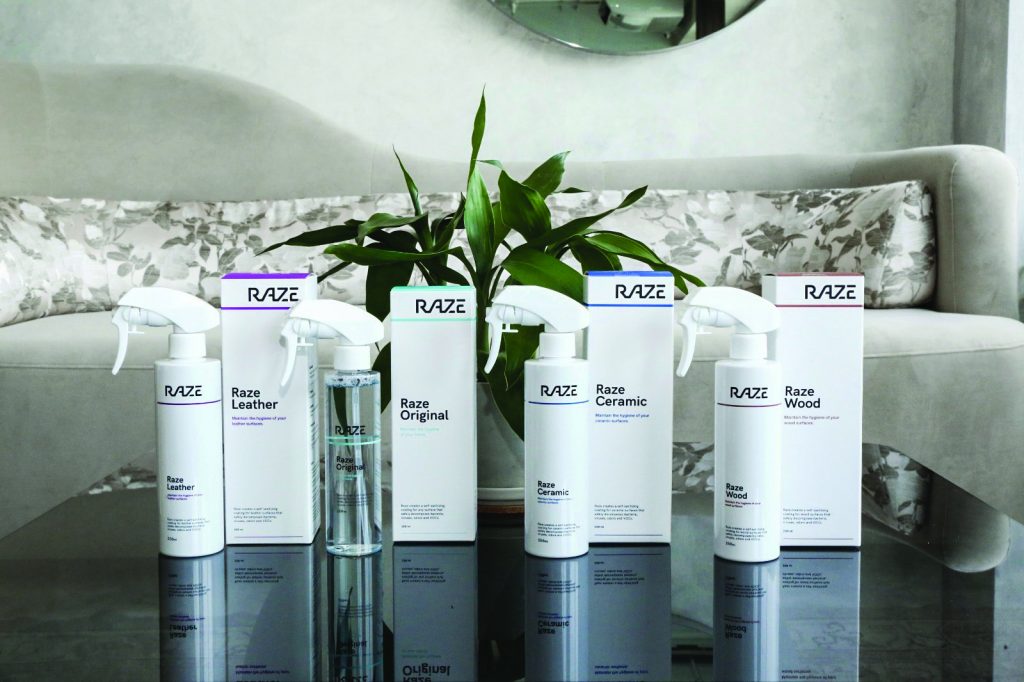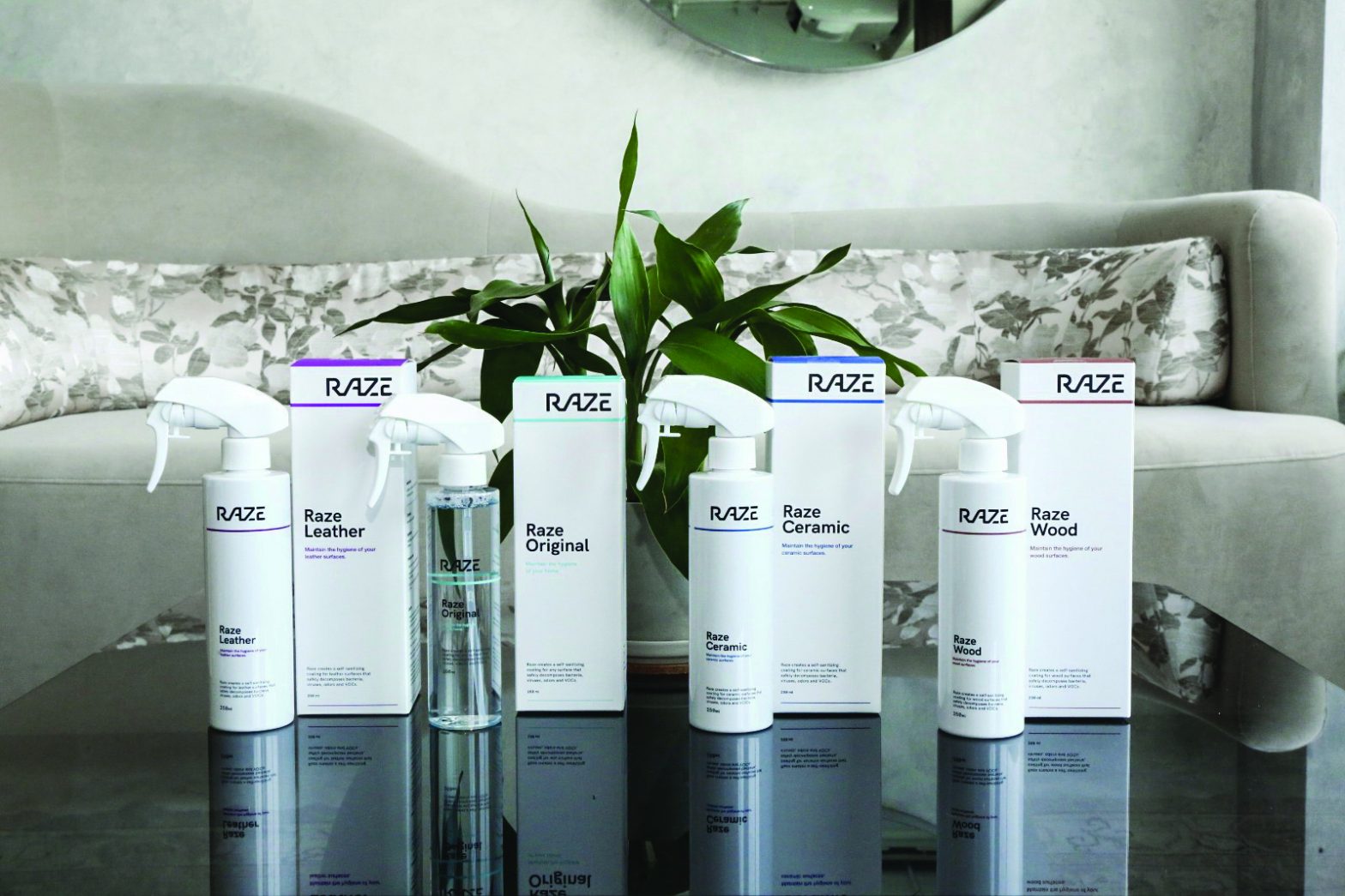A new material science company founded in Hong Kong, Raze is set to revolutionise how we clean our homes. We speak to founder Vince Fong about his journey.
How did you come to set up Raze?

We’ve been developing our sanitizing spray for more than 10 years. We actually started in agriculture looking at how we could better improve the health and hygiene standards of farm animals. We worked with a university in China to develop a product that would eliminate viruses, bacteria and odour, protecting animals from diseases such as swine flu. Once we launched, we realised that a lot of people in Hong Kong wanted to eliminate VOCs [volatile organic compounds] after renovating their homes, so we got into the construction, design and real estate space, treating houses. Then we realised that consumers wanted a spray that they could use themselves. We don’t want to be just a liquid spray company; our photocatalyst technology can be used to make a self-sanitising paint, or even textiles. We are still exploring the many possibilities of what this technology can offer.
Click here to learn more about Raze, and browse the entire line online
How does photocatalyst technology work?

The technology has been around since the 1960s in Japan; we’ve further refined it, making it even more effective. Nanoparticles capture energy from light and release electrons, which then bind to surrounding particles, including odours, viruses and bacteria, converting them to carbon dioxide and water. Traditional photocatalyst technology works only under UV or direct sunlight, but our nanoparticles can be charged under standard room lights. They’re also much smaller, so you can fit more particles in a given area. More particles, more protection.
How is this product different to standard cleaners such as bleach or alcohol wipes?

We see Raze as a complement to your standard cleaning routine. Germs can return to a surface that’s been wiped with bleach or alcohol after a few hours. But once Raze has been sprayed on, the nanoparticles will last and provide an ongoing sanitising surface for months. We do not bill ourselves as a cleaning product; what we hope is that people will ultimately rely less on harsh cleaning products that are worse for us in the long term.
Have you faced any challenges on this journey?
One challenge we are facing is to change people’s mindsets that yes, these products can create a sanitising surface that doesn’t require constant maintenance. Our goal is to create a foundation for wellness. We are a product of our surroundings, and when our surroundings are unhealthy, either from excessive harsh chemicals or germs, our own health will be negatively impacted too.
Tell us about some of your recent wins.
We’ve done lots of testing with third-party institutes, and we’re very proud of the results. We’ve gained the trust of many corporations – for instance we are treating KMB’s buses every six months. If you imagine how many people are sitting on those seats and the fact that we are confident to claim effectiveness for up to six months… it’s possible, the technology is here and it’s a gateway to a new way
of cleaning.
In partnership with Raze


